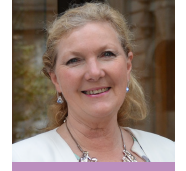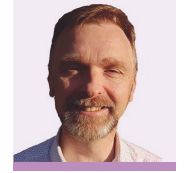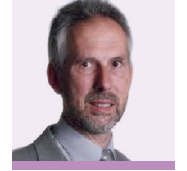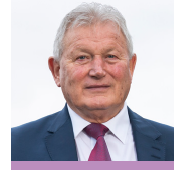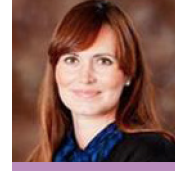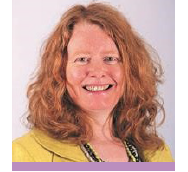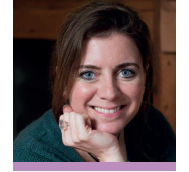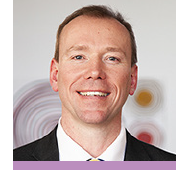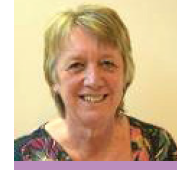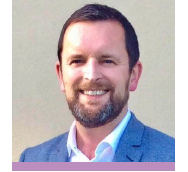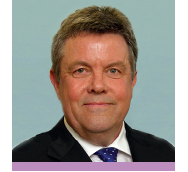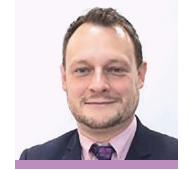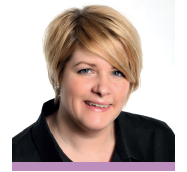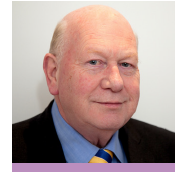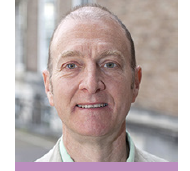2020 was one of the most challenging years our country has experienced, and our councils were at the forefront of the pandemic response to ensure our vulnerable people were seen and supported; our communities were socially distanced and local businesses protected.
Group Leader’s Year in review
Councillor Marianne Overton MBE
Vice-Chairman of the Local Government Association
Lincolnshire County Council and North Kesteven District Council
This annual report, published in July 2021, looks back at April 2020 – March 2021. It was a year of lockdowns, resilience forums, government u-turns and responding quickly to changing priorities.
Our group listened carefully to front-line experiences of our councillors, and our leaders met fortnightly. We contributed that evidence to help the Government work with us for more successful responses in support packages to individuals and businesses and local tracing.
While leading members at the LGA met with Ministers to inform the national response and subsequent recovery efforts, our councillors were instrumental on the ground, ensuring food parcels were adequate and delivered where needed; PPE was available; vulnerable families were identified; green spaces were available but safely used; and leisure and culture were protected ready for when lockdowns eased.
A pandemic alone would be challenging enough but the government continued to pursue policies that threatened our democracy, our planning system, our funding and council structures. We protested successfully against plans to curb our ability to campaign ahead of elections, challenged the government’s logic on remote meetings; and pushed back on the idea that devolution needed to be contingent on reorganisation.
As a group we have been vocal against proposed planning changes, urged for quicker resolution on waste and recycling reform and we call for sustainable funding for social care.
We have contributed locally, nationally and internationally on environmental issues including the need to develop alternative energy sources, carbon collection and benefits of reduced travel, evidenced through the pandemic.
We had to fight for our funding to be protected, something we continue to push for as it very quickly became clear that ‘do whatever it takes’ was not going to be fully funded, unlike spend by our NHS partners.
We also worked with our Crossbench Peers in the House of Lords to achieve positive amendments to legislation, based on our members views.
Group successes
Throughout the last year, our councillors have shown admirable leadership, both locally and through the LGA, and this Annual Report is a testament to our Lead Members, Peers and Officers who adjusted quickly and never missed a beat.
Although the elections were postponed in 2020 we saw our numbers increase, with our membership reaching 2888 councillors across England Wales. We continue to lead and sit in the administration of more councils than ever before. During the toughest year, Independent, Green and Plaid Cymru led councils have demonstrated their resilience, their vision, their collaborative nature and successes.
Members and Officers adapted quickly to new ways of working which enabled our regional meetings, workshops, peer support, conferences and monthly seminars on key issue policy. We were able to reach ever more members than before and roll out new initiative, influencing the LGA position on issues that matter and driving our work on Government.
Our Regional Meetings went online, with our Regional Chairs and Peers ensuring key issues like planning, devolution and reorganisation were properly discussed and action taken.
Our think tanks met online, bringing members together to discuss the impact of COVID and government decisions on our leisure provision, health and care system and fire services,
We held member workshops, including a very popular series on managing conflict and handling difficult conversations. At the full LGA AGM and Conference, we also held our own annual conference and group sessions.
The resources and campaign areas of our website have been kept updated with factsheets and templates and the Leaders’ weekly posts to help keep everyone informed and invite comment and contributions to the work of the LGA.
Members spoke at virtual conferences and our group was represented on the UK Forum, leading on Standards and Equality.
We held our seventh Next Generation Programme, with members completing the course virtually. We also supported leading members to attend the Leaders Programme and leadership academy as well as take up other development opportunities offered.
Ahead of the 2021 elections the office ran a very successful Candidate School series of events with over 90 prospective candidates attending. On one evening we were joined by Martin Bell OBE who inspired us all with his experience and wisdom.
Our Peers also continued to lend their support to members across the country, conducting reviews and providing mentoring support.
Planning is underway for our Annual Conference in November 2021 when many of us are looking forward to being together in person.
Thank you
In this extraordinary year, the Group Executive would like to thank all our Councillors, for your resilience, your commitment and your impact. 2020 was ‘the year we stayed home’, but our councillors were always contactable, out in the communities making a difference and bringing people together. You do a fantastic job and on behalf of the whole Group Executive, it’s a privilege to work with and represent you at the LGA.
Thank you to my Deputy, Clive Woodbridge, Treasurer Paul Woodhead and Executive members who represent our regions and drive our activity.
Thank you to our Peers and Lead Members for your thoughtful contributions and leadership on our Boards, on top of local commitments.
It is extraordinary how many councils are now under Independent Group leadership, and better for it. Others in no overall control and where influential Independent Group members are leading and shaping council policy. This year has been extremely challenging and it is humbling to see the work you’ve done for your communities and the country as a whole.
Thank you also to Sarah Woodhouse, Noleen Rosen and Aimee Wittam-Smith who do an amazing job in the group office.
Working together through the Local Government Association we have made a huge difference as always, focused on the things that unite us: our residents and our planet.
I wish you every success in the year ahead.
LGA Independent Group Budget Report
Councillor Paul Woodhead
Cannock Chase District Council
Elected Group Treasurer
Treasurer’s report 2020/21
You will read a lot in this report how 2020/21 was a year like no other. That stands true to our group’s budget as it does anything else. Due to lockdowns and social distancing our activity looked a lot different – gone were the in-person regional meetings and monthly workshops at Smith Square and instead our activity very quickly became virtual. We were able to ensure our engagement with members continued and to a great degree increased with the enthusiastic welcome of these online opportunities. This approach created a new opportunity for our members to link up the work of the Executive Committee to improve the decision making, impact and activity of the Independent Group within the LGA while also saving everyone travel time and benefiting our environment, things we will seek to continue going forward.
Our budget for 2020/21 was £19,323. Given the challenges and changes required to our activity we are reporting an underspend, having spent £7503 over the course of the year. This underspend mainly represents costs not incurred by not having in-person meetings, printing less, reduced travel and postponing our group elections. This is reflected across the organisation and does not impact future budget allocations. The money we did spend was to ensure our staff team were able to effectively work at home; the delivery of facilitated workshops for members; an online annual group conference and LGA conference sessions; and the continued development of online resources. These new ways of working from this year will present opportunities to further expand the impact of our budget for future years and the Executive Committee remains open to suggestions and ideas to support Independent Group Councillors in the effective representation of their communities.
Despite the challenges we were also able to deliver our Next Generation Programme and Be a Councillor activity, including a brand-new Candidate School which saw 94 prospective candidates sign up and several members elected in May 2021.
In 2021/22 our budget returns to £25,228 with activity planned to support our councillors, particularly new members and those taking leadership roles; continue our programme of online, hybrid and in-person events; as well as support for those standing for election in 2022 and beyond.
I continue to work closely with the Head of Group Office and the Executive Committee to provide financial oversight of the group, and contribute to the wider strategic direction of the LGA through the Executive Advisory Board.
An update from our Lead Member Peers
Councillor Mike Haines
Teignbridge District Council
National Lead Member Peer
Independent Group Peers give support and advice to our members across England and Wales. We have eight Regional Lead Peers:
Cllr Mike Haines - Independent Group National Lead Peer, and Regional Peer: South West
Cllr Paul Cullen - Regional Lead Peer: North East and Yorkshire and Humberside
Cllr Andrew Cooper - Regional Lead Peer: Green Members
Cllr Goronwy Edwards - Regional Lead Peer: Independent Members in Wales
Cllr Colin Mann - Regional Lead Peer: Wales
Cllr Alan Seldon - Regional Lead Peer: West Midlands and North West
Cllr Linda Van den Hende - Regional Lead Peer: South East and London
Cllr Ron Woodley - Regional Lead Peer: East England and East Midlands
At a regional level our work has included providing support for lone members; helping to resolve ongoing disagreements; advice to Group members where there has been a change of control (there has been less of this over the past year due to the lack of elections in 2020, but the 2021 elections have produced some new requirements); leadership support and mentoring; advice on policy issues and advice on protocols. There have been virtual meetings for peers as part of the LGA’s sector improvement discussions, and whilst this has not always been as good as face to face meetings it has given us much to think about for future meeting structures. Our Peers have also attended various (zoom) development events along with the LGA’s virtual peer conference.
In addition to our Regional Peers, we have a strong pool of 37 Member Peers who have supported councillors in various ways. This year Peers have undertaken two Corporate Peer Challenges, one planning policy and planning application and one strategic care and health peer challenge. The team have provided one to one mentoring support and advice in areas including budget setting, social care and regeneration, as well as co-facilitating workshops on issues such as prevention and health, children’s services, governance review, bespoke development support, planning, finance and budget support, new councillor inductions, equality, diversity and inclusion training sessions and Recovery and Renewal Panels.
Next Generation
I helped facilitate the Independent Group’s seventh ‘Next Generation’ programme for future leaders. This would usually involve three weekend residential modules in Warwick, but this year all the modules had to be virtual. The feedback from this was once again encouraging, and it is good to see many former participants go on to leadership roles within their councils and at the LGA.
Corporate Peer Challenges
One of the key benefits of LGA membership continues to be the sector-led support on offer, including the Corporate Peer Challenge (CPC). I would encourage all councillors to check whether their council has had a CPC in the last five years and if not, request one via your Leader or Chief Executive.
Looking forward
We are always keen to do more, and we continue to receive many requests for peer support, via the Group and the LGA more widely. I am writing this report at a time when the COVID restrictions continue to be lifted, and hopefully things will return to a more ‘normal’ situation over the summer. We are continuing to support councillors during this time, and look forward to working more closely with you (without the need for social distancing) in the future.
If you are interested in receiving support from any of our member peers or would like to become a peer, please contact: Sarah Woodhouse, Head of the Group Office.
LGA Fire Services Management Committee
Councillor Ian Stephens
Isle of Wight
Chair, LGA Fire Services Management Committee
The last year has been a unique one for the LGA’s Fire Services Management Committee as, like our member Fire and Rescue Authorities, we have had to adjust to COVID-19and all the changes it has made to the way we work and operate.
FSMC was at the forefront of some of the new ways of working, being one of the first LGA boards to shift to holding virtual meetings. The meeting of Fire Commission in 2020 was attended by the newly appointed Fire Minister Lord Greenhalgh and saw more participants than we normally achieve with meetings in person. At the same time we ensured the LGA’s wider lobbying around the response to the pandemic included Fire and Rescue Authorities having the ability to meet remotely alongside councils and making the case for funding for authorities to replace shortfalls in income and increases in expenditure.
Although COVID-19 dominated the headlines over the last year, FSMC’s wider work did not stop. In the first part of 2020, FSMC Lead Members and LGA Officers worked in collaboration with the National Fire Chiefs Council (NFCC) to input to the Home Office’s submission to the Treasury for the 2020 Spending Review in the summer of 2020.
In September 2020, the LGA submitted a consultation response to part one of the Home Office’s two-part review on the role of Police and Crime Commissioners. The review was in response to the Government’s manifesto commitment to strengthen the accountability of PCCs and expand their role. The submission focussed on both Police and Crime Panel issues as well as fire governance. With the Home Office having indicated there will be a White Paper setting out the way forward on fire governance reform published shortly, FSMC will be looking to respond to it this summer.
The FSMC and Fire Authority Members across England have continued to engage with HMICFRS to contribute evidence to its annual inspections, including the COVID-19 inspection rounds in 2020. This has culminated in: the COVID‑19 National Inspection Report, published in January 2021; and the State of Fire 2020 report, published in March 2021.
Building Safety remains a key priority area for FSMC. As Chair, I wrote to the Minister of State for Building Safety, Fire and Communities, Lord Stephen Greenhalgh, in August 2020, to raise the FSMC’s concerns about the fire safety implications of Permitted Development. This included that the conversion of offices and shops to accommodation all too often results in residents living in buildings that would not meet regulatory safety standards if they’d been built as housing.
The FSMC has continued to support the LGA’s work on building safety and the ongoing remediation of existing buildings with dangerous cladding. This year has seen the LGA play a leading role in improving legislation, including:
- the Fire Safety Bill, which has now been passed, will strengthen the ability of FRSs to take action where buildings have dangerous cladding systems
- the further development of the Building Safety Bill, which FRSs will have a key role in delivering.
We’ve also been busy responding to HMICFRS recommendations from the first State of Fire report from 2019. We worked with the NFCC to develop a Core Code of Ethics (Core Code) for fire and rescue services, which was launched on 18 May 2021. It reflects best practice principles and has been designed to underpin the way we serve our communities, carry out our role, and work together. It is intended to become the common foundation across all fire and rescue services in England. The Core Code has been informed by a joint consultation undertaken in 2020.
In March 2021, the annual LGA Fire Conference was held virtually for the first time. Each of the four plenary sessions and two interactive meeting sessions were Chaired by FSMC Lead Members. Guest speakers included: The Minister of State for Building Safety, Fire and Communities, Lord Stephen Greenhalgh, at the opening plenary session (Monday, 1 March); and, Sir Thomas Winsor, Her Majesty’s Chief Inspector of Fire and Rescue Services.
Improving equality, diversity and inclusion (EDI) in the fire and rescue sector continues to be a priority area for FSMC. In addition to raising awareness of key developments on EDI issues, the Fire Diversity and Inclusion Champions Network (Chaired by FSMC Vice-Chair, Dr Fiona Twycross) has continued to convene virtually throughout 2020/21.
My term as chairman of the FSMC comes to an end this September, and I would like to thank all LGA officers and committee members for their support. The strength of the FSMC has been the cohesive cross political group working, and I am indebted to the lead members for the superb work which they undertook during those years.
Children and Young People Board
Councillor Julie Fallon
Conwy County Borough Council
Deputy Chair, Children and Young People Board
In my second year as Deputy Chair, the priorities of the Children and Young People Board have been wide ranging. However, as you would expect the impact of COVID has played a large part in the work undertaken. In the early stages of the COVID pandemic I met with the other Lead Members on a regular basis to discuss the issues we were encountering locally and nationally with officers. Some of the key points that the board has been working through are:
The Education Recovery Programme
Sir Alan Wood, who has been appointed to work alongside Sir Kevan Collins, the Government’s Education Recovery Commissioner, attended a meeting of the Children and Young People Board to discuss education recovery and the role of councils in supporting this work. This paper sets out key issues around the re-opening of all schools and plans for a programme of education recovery to support children and young people. Sir Wood listened to the board members and their experience and suggestions. It was refreshing to hear that Sir Wood was keen for there to be strict timescales for the recovery programme, to ensure the best outcomes. The dialogue will undoubtedly remain open with the Board and officers to feed in new information as we move through the recovery.
Children's food and wellbeing in the context of the social and economic recovery
Access to affordable, nutritious food has become a particular priority issue during the course of the pandemic. This has led government to introduce a range of measures including the £63m from the Department for Environment, Food and Rural Affairs (Defra) for councils to help households who were struggling to afford ‘food and other essentials’, and the Department for Education (DfE) contract to provide vouchers for Free School Meals during the 2020 summer holiday.
Children's Social Care Review
We received a Presentation from the Chair of the Independent Children's Social Care Review. The Government launched an Independent Review of Children’s Social Care earlier this year. The Chair of the Review, Josh MacAlister, attended a meeting of the Children and Young People Board to hear from councillors about key areas of concern, issues that they believe could helpfully be addressed by the review, and any areas of good practice.
Some of the other areas that we have covered over the last year include: Youth Participation and Skills Update, Out of Area Placements Housing Protocol, Early Years, School Testing, Raising the Age of Criminal Responsibility. We have continued to respond to consultations, lobby government and continued building relationships with key stakeholders. Cllr Judy Jennings and I have represented our members at Board meetings. Unfortunately, the NCAS Conference was unable to go ahead in person this year but I am happy to say that it did take place online and I was able to join the panel in some meetings to support.
I have continued to work with Cllr Judy Jennings and would like to thank her for her commitment to the board. I would also like to thank the officers for all their support in what has been an incredibly difficult year for us all. I would like to pay particular thanks to Sarah Woodhouse, who has been available and has gone above and beyond throughout.
City Regions Board
Councillor Gillian Ford
London Borough of Havering
Deputy Chair, City Regions Board
Over the last year, three key areas of national importance sat behind the work of the City and Regions Board, COVID-19, the implications of the UK’s exit from the EU and equalities. These filtered through board discussions including around Urban Cost Pressures and the key factors that affect cities more so than rural communities. WPI Economics were commissioned to undertake this piece of work with homelessness being one key finding of significant difference.
With a focus of supporting and developing successful local industrial strategies and to strengthen England’s trade and investment, the LGA commissioned Metro Dynamics to undertake research, with a view to influencing the English Devolution White Paper. Supporting IPPR North, the independent research report Devolving Power to England’s Regions, Towns and Cities highlighted the UK’s centralised policy-making arrangements.
As with all boards COVID had to be a focus and the Board considered the report Past the Peak – Exploring and forecasting the economic impact of COVID-19 on NUTS2 regions in England and Wales by Esther Barrott. There were no surprises on the economic impact, health and wellbeing implications and the long-term development needs of regions with re-skilling and the growth in low carbon jobs.
Shared Intelligence were commissioned to support the project on Place Based Employment and Skills commissioning. This involved eight councils and combined authorities working with local partners, to identify and collaborate on specific skills or employment issues. Case studies, recommendations and areas of focus for local authorities were included in the final report.
EU exit updates were provided throughout the year with Freeports and the status of the UK Shared Prosperity Fund regularly coming before the board as government announcements were made. Conversations also included a steer on how the remaining unspent ESIF funds should be utilised to support COVID-19 and the economic recovery.
Higher Education Institutions Funding and levelling up were discussed alongside Education to Employment: supporting youth participation, and it was employment and skills that fell under the spotlight, due to the economic climate. With a focus on lobbying government to recognise the benefits of locally led policies and with the necessary funding, local authorities are the perfect conduit to ensure the delivery of place-based careers, work and skills support. With this in mind, Lead Members had a roundtable meeting with Mims Davies MP, Minister for Employment, with Members outlining that with more co-design, local government can add so much value to the Governments Plan for jobs, however despite cross party representation the government has continued to centralise with the Restart and Kickstart programmes.
A number of additional meetings and roundtables took place including a roundtable on the Future of Economic Growth Funding, a joint meeting with the Peoples and Places Board and the Community Wellbeing Board to discuss health devolution.
Community Wellbeing Board
Councillor Claire Wright
Devon County Council
Deputy Chair, Community Wellbeing Board
LGA Community Wellbeing Board Annual Report – Claire Wright (lead member)
The past year has seen the board’s focus on three main areas:
- Handling the COVID-19 pandemic
- The transition to integrated care systems (NHS reorganisation)
- Encouraging the government to move forward on adult social care reform
COVID-19
The board’s focus has been largely on pandemic public health issues, in particular the roll-out of the vaccination programme, and the provision of support for vulnerable people, people with mental health problems and those with housing issues. Members interviewed Jenny Harries, deputy chief medical officer at the time, back in November and over the year there have been various government officers and ministers we have engaged with. One of the concerns that members pursued was the poor information sharing between the Department of Health and Social Care and directors of public health, relating to the vaccination roll-out. This appears to have now been largely resolved, fortunately, with directors of public health now receiving information on who has been vaccinated in their communities. Officers have worked incredibly hard on providing reports for future policy making on many aspects of the fallout of the pandemic.
Adult Social Care Reform
This subject has been the long-term focus of the board for many years. Officers have put together impressive well researched documents over that time with strong recommendations on possible ways forward on the funding of adult social care, which is now widely regarded as being at crisis levels. People are losing their houses and cannot afford care for their loved ones. How is it right that people with traditional physical diseases such as cancer receive treatment free at the point of delivery, yet people with dementia must pay?
The Prime Minister promised on his first day in office that one of his priorities would be to fix this injustice, however, almost two years later, we have seen little movement. The NHS Bill focuses on yet another costly reorganisation, while the thorny issue of adult social care funding is missing entirely.
There have been recent meetings between lead board members and health minister, Helen Whately, who appeared to be in listening mode, however, it is too soon to say how this issue will be resolved or when. It has been very frustrating for both board members and officers alike.
NHS reorganisation
The NHS Bill claims to be a reversal of the 2012 Health and Social Care Act but it is much more complex and potentially worrying than that.
CWB members have been involved in creating priorities for consultation documents. These have included ensuring public health remains within the remit of local councils and that the new integrated care systems, which will replace clinical commissioning groups, are transparent and accountable. There is much concern among campaigners that they will not be. It is still unclear as yet how transparent and accountable ICS’s will be, as in shadow form ICS boards meet without the press and public present. This will need to be watched carefully as plans progress.
Thank you and goodbye!
Finally, as I have now stood down from my Devon County Council seat (and of course my work with the LGA) I would like to thank everyone I have worked with over the past three years. It has been an amazing privilege to have worked at such a high level and be able to influence government policy as it emerges.
Particular thanks go to the officers of the CWB who are endlessly professional and knowledgeable, Sarah Woodhouse and her team who have been just brilliant and such a huge support to me. And finally, Marianne Overton, who has been a kind and encouraging presence since I joined the board in 2018.
Thank you all so much - and all my very best to you in continuing the excellent work of the LGA.
Culture, Tourism and Sport
Councillor Julian German
Cornwall County Council
Vice Chair, Culture, Tourism and Sport Board
As we all know, the pandemic has been an extremely challenging time for local government and our residents. I am pleased how myself and Cllr Tom Hollis as your Independent Group representatives have led the Board, ensuring that we have had a very active year, using the changes to virtual meetings to increase the number of Board meetings and the depth of engagement with Independent Group colleagues. Tom and I have been persistent in pursuit of higher- level government representation at the Board, which has provided dividends. We have also secured better impact analysis of Board activity, enabling better Board decision making.
The online CTS conference, consisting of four events spread over three days, had a higher level of attendance the previous conferences. I chaired the culture session which opened the conference, and included presentations from Sir Nicholas Serota, Chairman of Arts Council England, a video from Caroline Dinenage MP, Minister for arts and culture, and Caroline Norbury, Chief Executive of the Creative Industries Federation.
The pandemic has increased inequalities in our communities and following the death of George Floyd Jr and global protests there has been a focus on equality, diversity and inclusion. I was appointed the Board's Equalities Champion and have led the Boards activity. This is a huge agenda and within the Boards areas of interests there are very different challenges. I am keen that we make, and can demonstrate that we have made, progress. I proposed and the Board agreed that we have three areas of focus: sharing best practice, leadership and through commissions. As Independents we are used to living our values and embracing the Nolan principles and these three areas follow on from this. Sharing best practice is key to the work of the LGA and with better data analysis we will be able to see the impact of this. Through our leadership in the culture, tourism and sport sectors, ensure we are living our values and putting equality, diversity and inclusion at the centre of all we do. I felt this was visible at the LGA CTS conference. The CTS Board commissions various activities, regularly with Sport England and Arts Council England, so ensuring that ED&I is embedded into any commissions.
Given the impact of the pandemic on leisure services this has been a particular focus of our work, the LGA estimating that one on four leisure centres and swimming pools will be lost by the end of the year. The CTS think tank has been active and we have had good zoom meetings on the topic. We have continued to make the case for further funding, whilst Government released £100m, the LGA and Sport England estimate the need to £400m. There is a serious ED&I challenge here, with correlation between those leisure facilities most exposed being in more deprived communities. In terms of building back better, leisure facilities provide a range of health and socio-economic benefits, and we are very concerned about the future.
The Board is now undertaking joint work with the Association of Public Sector Excellence and Culture and Leisure Officers Association on the future of leisure provision.
In the arts, freelancers have been particularly hit by lack of Government support and there is real concern for theatres and venues that will continue to be impacted by social distancing. The Board has discussed this with the Government's Commissioner for Cultural Recovery and Renewal, Neil Mendoza.
I was on the advisory board for the Cultural Cities Recovery Report.
Library services have played a key role in supporting people and keeping them connected through the pandemic, through the use of technology but also for those without internet access. The Board has met with Isobel Hunter, Chief Executive of Libraries Connected, regarding public library service accreditation, which will tie in with the Board's improvement work. Cllr Tom Hollis has been appointed lead member for this work.
My thanks to the Think Tank members and all those who have engaged with the work of the Board.
Economy, Environment, Housing and Transport Board
Councillor Linda Gillham
Runnymede Borough Council
Deputy Chair, Economy, Environment, Housing and Transport Board
Despite the limitations of the pandemic and on-line meetings this board has been amazingly active this year.
We have spent many Board meetings discussing our responses to various consultations and most important of these have been the Environment Bill, Planning Bill and the Building Safety Bill.
Under the environment brief we have examined proposed changes to Planning legislation and provisions of the NPPF which have been seen as a loss of control by Planning Authorities. The introduction of “Beautiful” in the future Design Code too, has proved controversial and led the board to be concerned about the quality of future buildings and the importance of the LPA in place shaping.
The Board has also considered the implications of flooding and climate change generally and has joined with other LGA members to form a Climate Change Task Group which is looking forward to a presence at the COP26 in Glasgow in November. This opens up discussions on Green Jobs and the role of Local Authorities in the provision of Electric Vehicle Charging points.
Housing too has been part of active discussions and concerns from the Board. We have devoted much thought to Building Safety and responded to consultations on Future Building Standards looking at energy and ventilation standards on non-domestic buildings and the implications of the Grenfell Fire on the many high-rise residential buildings. The Board is in discussion with Homes England on how LA’s can deliver more affordable housing.
Under the Transport brief the Board has looked at the role of LA’s in providing electric vehicle charging infrastructure in urban and rural areas as this becomes more important in the decarbonisation of transport agenda. In the Autumn the LGA ran a series of webinars on decarbonisation of transport which were very well attended. The EEHT Board has also contributed to the National Bus Strategy which looks at the provision of bus services outside London.
I am grateful to all those members who have contributed examples of good practice in these areas and who have commented on the Think Tank. With such a wide brief and implications for all levels of Local Government your comments and contributions are very valuable. Thank You!.
Improvement and Innovation Board
Councillor Neil Prior
Pembrokeshire County Council
Deputy Chair, Improvement and Innovation Board
In this strangest of years, the Improvement and Innovation board has adapted to continue to support councils in delivering vital public services to their local communities. As the lead member for the productivity portfolio, broadly covering procurement, innovation and digital, the work of the team has been to support the immediate needs of the sector, whilst continuing to push forward an agenda that supports councils ongoing improvement and modernisation.
Specific areas of note have been procurement, where the team have worked with the National Advisory Group for Procurement (NAG) to ensure that council’s supply chains have remained effective and resilient, especially where personal and protective equipment (PPE) was concerned. The team have also had significant influence over the green paper for procurement ensuring that local government’s voice was heard, and listened to, on what has now become a key priority for the government post Brexit.
The COVID-19 pandemic has further accelerated digital transformation, and the necessity for councils to really embrace remote working has never been greater. With that, however, has come an increase in cyber-crime, and so the work of the team, with funding provided from the National Cyber Security Programme, has worked with over 80 per cent of councils on senior level awareness and gaining cyber security qualifications.
This brief report does not do justice to the work of the team in other equally important areas such as climate change, the continued use and adoption of data through LG inform, the work on upskilling councillors on digital and commercial skills, and supporting the sector’s innovation has all continued. I believe that I have formed good working relationships with the team, and their knowledge, expertise, passion for improvement and professionalism continues to impress me. The LGA has some brilliant people working in this team, and they make my role easy!
As the Independent representative, I have embraced the position over the past year, and the fact that we have had to work remotely means that I’ve been able to more involved. To support and promote the work of the LGA, I’ve chaired six webinars covering topics on procurement, digital, and climate change; have been a speaker at two LGA webinars covering Sector Led Improvement and ‘digital political leadership’; spoken at three external webinars with Tech UK, UK Cloud and Digital Catapult; and I have continued to encourage and develop relationships between the LGA and Welsh LGA to ensure that best practice from both English and Welsh councils can be shared.
As an Author for the LGA First magazine, I’ve been able to write or contribute to four articles, with my own ‘Learning through Crisis’ piece also being a webinar subject at the virtual LGA conference. And as I wrote last year, I lead by example so have been able to use my knowledge and expertise a peer to make sure that I am an active and contributing member of our group.
It is genuinely a privilege and pleasure to represent our group and the sector through the Improvement and Innovation Board, and I look forward to continuing this important work alongside the team
People and Places Board
Councillor Robert Jennings
Epping Forest District Council
Deputy Chair, People and Places Board
The People and Places Board represents the interests of the Local Government Association’s (LGA’s) non-metropolitan authorities in England and Wales.
At its last meeting of the 2019/20 political cycle in June, the Board received its End of Year report, which considered its achievements:
- commissioning research to:
- inform the LGA’s position on the proposed Devolution White Paper;
- explore the opportunities and future direction of collaboration between district and county councils;
- examine international examples of devolved growth funding and fiscal devolution;
- better understand the functions and future of established and emerging sub-national bodies;
- responding to the Government’s consultation on freeports, focusing on local skills, business support and the wider trade and investment landscape
- influencing on the design of publicly funded roll out of gigabit-broadband to ensure a meaningful role for councils in delivery
- working with Defra to shape the new Environmental Land Management Scheme;
- supporting the United Nation’s sustainable development goals by examining best practice abroad
- proposing that the UK Shared Prosperity Fund be led by councils and combined authorities that both meet the needs of communities and are driven by locally determined outcomes
- examining how the COVID-19 pandemic has impacted on European Structural and Investment Fund programmes relating to growth, training and skills; and
- contributing to the LGA’s employment and skills work.
At its first meeting of the new political year in September, the Board agreed its priorities for the coming year:
- pursuing a programme of engagement with Government and rural stakeholders to ensure councils have the powers and resources to lead a successful and sustainable recovery and drive improved outcomes for their communities as a result of the Covid-19 pandemic
- taking forward the LGA’s lobbying work on skills, making the case for the Work Local model and continuing to engage with key stakeholders to reflect the role employment and skills will play in the Government’s recovery plans
- continuing to play a leading role in driving forward the digital connectivity agenda;
- ensuring that key elements of place-based growth (rural land management, the UK Shared Prosperity Fund together with trade and investment) fit with the priorities and ambitions of non-metropolitan authorities; and
- identifying cross-cutting policy issues which it would like to work with other boards in order to help shape LGA lobbying lines on planning, transport and housing.
It’s also been a busier than usual year on the Parliamentary front, with the Board responding to an increased number of consultations and inquiries:
- DCMS Committee’s inquiries into:
- the provision of broadband and the roll-out of 5G to ensure every home and business in the UK has gigabit -capable broadband by 2025; and
- the impact of COVID-19 on DCMS sector;
- HCLG Committee’s inquiry into the progress on devolution in England
- Education Select Committee’s inquiry into adult skills and lifelong learning
- APPG’s inquiries into:
- skills and green jobs;
- fiscal devolution; and
- the role that central government can play in making a success of devolution in England;
- DEFRA’s environmental and land management policy discussion document
- DWP’s plans to support the long-term unemployed
- Public Accounts Committee’s inquiry into improving broadban
- Public Administration and Constitutional Affairs Committee’s inquiry into the evolution of devolution;
- Environmental Audit Committee’s inquiry into green jobs; and
- BEIS’s consultation on the UK’s new subsidy control regime.
Finally, I’d like to thank Councillor Helen Grant (North Yorkshire County Council) for her support and contribution, the Think Tank for its focus and input, which ensured the Independent Group’s views were always represented and of course the Independent Group office staff for their guidance
Resources Board
Councillor Jason Zadrozny
Ashfield District Council and Nottinghamshire County Council
Deputy Chair, Resources Board
2020/21 was a particularly busy year for the LGA Resources Board and finance team as the financial impact of COVID-19 hit councils.
The LGA has made the case throughout the pandemic that the Government needs to fully meet the financial costs of COVID-19 on councils, including lost income.
Our calls were largely heard and in 2020/21 the sector received £7 billion of new money to help with expenditure pressures, as well as £2.5 billion to help support residents, schools, and the adult social care sector. There are also compensation schemes for sales, fees, and charges losses, and local tax losses. What the government didn’t do is cover 10 per cent0 of losses, something we continue to call for.
There have been countless responses to consultations written, evidence given and articles written. Some of the key activity from the year is listed below:
- Influencing the 2020 Spending Review, calling on the Government to provide an additional £10.1 billion in core funding by 2023/24, as well as nearly 150 individual “asks” covering all aspects of financing and local government.
- Started our work to inform the 2021 Spending Review.
- We responded to the Provisional Local Government Finance Settlement for 2021/22.
- Our submission to the 2021 Chancellor’s Budget focused on key topics including COVID-19 and economic recovery, Brexit, jobs, devolution, local government finance, adult social care reform, children’s social care and education.
- We have continued our work on business rates retention, fair funding council tax and alternative sources of income for councils.
- Board discussions on support or low-income households, financial inclusion and the deepening of challenges because of the pandemic have been at the top of our minds and continue to influence our work going forward. Data on LGInform has been compiled to help councils assess financial hardship and economic vulnerability in their place.
- The Board has been involved in responding to the Redmond Review on financial reporting and external audit.
- We saw the publication of the new Green Book, which introduces changes to the way business cases for projects are appraised.
- The Government launched a consultation on the future of the New Homes Bonus (NHB) in February, to which we responded.
- On EU Funding: Following lobbying by the LGA, there has been significant improvement in the speed of European Social Fund spending.
- Due to flexibilities offered by the European Commission, the LGA helped secured the ERDF funded Reopening High Streets Safely fund and the Welcoming Back fund for district councils, worth around £100 million
- In regards to Workforce issues, pay deals were agreed for the local government workforce, fire and rescue services, police staff, schools and other education professionals
- The workforce team have also been engaged with COVID-19discussions around wellbeing of the workforce, ensuring provision through emergency recruitment, self-isolation, return to work and school closures
- The workforce and pensions teams coordinated the LGA and councils’ responses to the consultation on, introduction of, and ultimately revocation of, the government’s cap on exit payments
- EDI has remained a priority this year, particularly the development and implementation of a Workforce Race Equality Standard (WRES) for social care in councils.
Priorities for the year ahead include ensuring councils receive adequate funding, particularly in response to the ongoing pressures of COVID-19 and central government policies. The funding, local tax collection and sustainability of the sector are critical components of our work and continue to pose challenges and opportunities to do things differently.
Thank you to Cllr Phelim Mac Cafferty for joining me on the Board and colleagues who have informed our effective contributions at and between meetings.
Safer and Stronger Communities Board
Councillor Hannah Dalton
Epsom and Ewell Borough Council
Deputy Chair, Safer and Stronger Communities Board
The last year has been a busy year for the Board not least because of COVID and our work around community safety and resilience for councils.
The SSCB has a broad remit and it is hard to do justice to the many topics we have covered; from serious crime and anti-social behaviour to unauthorised encampments, licensing, Gambling Act review and water safety, below is a brief overview of the Board’s work over the last year.
Domestic Abuse
A priority has been tackling domestic abuse through supporting the introduction of the Domestic Abuse Act. As part of this the Board has consistently made the case for increased investment in early intervention and prevention services including domestic abuse perpetrator programmes, with the ultimate aim of helping to eliminate domestic abuse from occurring at all.
The recent passing of the Domestic Abuse Act is a major success for the victims of domestic violence and through the Act it will provide the opportunity to transform the response to domestic abuse, by ensuring the necessary protection for domestic abuse victims, interventions for perpetrators as well as resources and funding for this. Following successful lobbying around the Act, the Government has also committed to reviewing DA perpetrators as part of the forthcoming Domestic Abuse Strategy.
In addition, the Board’s Chair and Deputy Leads worked together to submit a robust and strongly worded response to the consultation on Violence Against Women and Girls Strategy (2021 – 2024).
Building safety
The Board has continued to work tirelessly on the forthcoming Building Safety Bill to ensure it provides a robust new regulatory regime for building safety following the Grenfell Fire in June 2017.
Alongside the Building Safety Bill, the government introduced the Fire Safety Bill into Parliament, which whilst welcomed has raised concerns around the role of councils in its application and the additional cost of this.
In addition, the issue of building remediation and the cost of this has been a very public one and the Board has lobbied Parliament on this issue.
Modern Slavery
Since the introduction of the Modern Slavery Act the LGA has worked tirelessly on raising awareness with councils and providing guidance.
Whilst this work continues, the focus has shifted to include raising the issue of the new burdens imposed on councils by this issue. Councils have not received any new burdens funding to support their work, despite the growing numbers of suspected victims of modern slavery being identified and referred through the National Referral Mechanism (the central system for identifying and supporting victims).
Prevent, counter-extremism, and cohesion and integration
COVID has presented a number of cohesion and extremism issues. The pandemic has brought unprecedented awareness as well as enabled mainstream circulation/advocacy of various conspiracy theories. The uncertainty, fear and the complexity of the pandemic over the last year has contributed to the both the growth and appeal of conspiracy theories, mainly online, and been exploited by extremists to fuel divisive narratives.
The Special Interest Group on Countering Extremism (SIGCE) has continued to achieve considerable success to support councils to counter extremism through its work including webinars, training, Knowledge Hub as well its member networks.
COVID-19 compliance and enforcement
Supporting councils frontline COVID compliance and enforcement activity has been a major area of work for the Board this year. The LGA has been working closely with government departments and councils to shape the development of COVID-19 regulations and guidance, share best practice and highlight issues. This has highlighted the pressures being experienced by stretched environmental health and trading standards teams, leading to cross government work considering how to strengthen the resilience of these vital local services.
I’d like to take this opportunity to recognise the challenging year that we’ve all had as elected members supporting our communities through what has been an unprecedented time. As always, thank you to the members of the SSCB Think Tank for your contributions over the past 12 months.
Local Partnerships
Councillor Tony Saffell
North West Leicestershire
I am delighted to represent the Independent Group on the Board of Local Partnerships, which is a joint venture between the Local Government Association, HM Treasury and the Welsh Government. It was formed in 2009 and works solely for the benefit of the public sector.
Local Partnerships’ purpose is to help public sector organisations face the ever-increasing challenge of meeting rising demands for services, with shrinking budgets. We provide capacity and capability where it is needed, helping to form a bridge between central government policy and local delivery. Our support is especially relevant in helping councils and combined authorities shape and create place-based growth.
We report annually on our activities and performance through our Impact Report, the latest of which may be found on our website. Highlights of our 2020/21 work include:
- We developed the Greenhouse Gas Accounting Tool, in collaboration with the LGA, to provide a straightforward and consistent approach for councils seeking to calculate their own carbon baseline. The tool helps authorities understand their most significant sources of emissions which can then be used to prioritise actions to reduce carbon emissions.
- We provided emergency guidance and support on COVID-19 operational, contractual and contingency matters on waste disposal agreements.
- We worked with a team of MHCLG officials to scrutinise the financial, commercial and management features of 100 business cases submitted by councils seeking support from the government’s Future High Street Fund. This culminated in the Minister’s announcement of £830m support for 72 successful areas.
- We worked with the Joint Air Quality Unit (established by Defra and DfT) to help progress the business cases for air quality improvement plans and support the development of the commercial, financial and management cases.
- We launched the fourth iteration of the Re:fit energy performance contracting framework. The Re:fit framework is a procurement initiative for public bodies wishing to implement energy efficiency retrofit projects, local energy generation projects, achieve financial savings and minimise their carbon footprint.
- We supported the IPA and contracting authorities on how they should approach PFI contract expiry. Our chief executive, Sean Hanson, gave evidence to the Public Accounts Committee in February 2021, contributing to the future direction and resourcing required within the public sector to manage this significant issue.
- We supported the LGA’s Care and Health Improvement Programme, funded by the Department of Health and Social Care, which is designed to help local health and care systems operate more effectively.
- We delivered a wide range of webinars focusing on issues including: our guidance on tackling homelessness during the pandemic, the Outsourcing Playbook, project resilience, energy retrofit of buildings and Scope three emissions.
- In collaboration with The MJ, we initiated and supported a new award: “Leadership in responding to the climate emergency”, recognising the importance of local government work in this arena.
- We supported the Defra and numerous councils helping treat and divert from landfill approximately threemillion tonnes of residual waste.
For further information or a discussion about Local Partnerships’ work, please contact chief executive Sean Hanson, [email protected] or 07771 838 817.
Congress of the Council of Europe
Councillor Martin Fodor
Bristol City Council
Work of the Congress continued despite lockdown across the 47 member states.
My project, Rapporteur on Smart Cities, was close to completion in early 2020. The report to the Governance Committee draws on case studies gathered from the committee and illuminates priorities for work on smart cities to be inclusive, tackle sustainable development goals, and ensure that the ‘smartification’ protects democracy, human rights and the rule of law – the underpinning priorities of the Council of Europe. Lockdown added weight to messages about digital inclusion and e-democracy, with rapidly improved access to remote meetings for many people - for those with limited access to technology and data services exclusion was rapidly escalated.
With the rise of artificial intelligence services affecting local government and communities the work has been extended to draw on local and regional experiences for governments across Europe.
Congress committees and the chambers of local and regional government have continued their work through lockdown. Important debates have taken place about the relationship of cities and regions, the tensions of border regions, and the need to protect elected representatives from pressures and threats.
The actions of the Turkish Government against women’s rights and safety have led to vocal complaints from other members of the Congress, and a briefing from our own Permanent Representative to the Council of Europe in the light of its withdrawal from the Istanbul Convention – particularly ironic given the host country.
Councillor Linda Gillham
Runnymede Borough Council
The Congress of the Council of Europe has, like other organisations been forced to meet online this year. Despite this there has been some election monitoring and observations carried out remotely. All members who have reported back to the monitoring and governance committees have bemoaned the fact that so much is lost if you are not able to meet candidates, voters, election officials, political parties and the press face to face and not being present in the polling station is so difficult. However it is great that some work has continued especially in places like Mostar who held their first elections for many years and the Congress launched a new project in Bosnia and Herzegovina, with special emphasis on Mostar and developed proposals for new projects in Georgia, the Republic of Moldova; and the continuation of co-operation activities in Ukraine, Armenia, Tunisia and Morocco, as well as planning a workshop on Sustainable Development Goals (SDGs) with the Assembly of European Regions.
A third volume of the Human Rights Handbook has been produced that addresses the issues of health, education, work, housing and social security, protection, inclusion and integration and presents good practices implemented at local and regional level regarding these issues, in particular in connection with the COVID‑19 pandemic. The various issues faced by Local Authorities are illustrated with some 65 projects and initiatives developed in local and regional authorities from 27 Council of Europe member states. It is interesting to hear how Local Government has performed or been empowered in decision making across a range of countries.
These meetings have been conducted through the KUDO system which has not only allowed members from across 47 countries to engage in meetings and plenary sessions but has also enabled translation and voting in a way we would not have imagined 18 months ago!
The UK delegation also discussed the role of the sustainable development goals in the work of Congress which highlighted the UK government’s view that legal protection might not be its preferred position.
Council of European Municipalities and Regions
Councillor Marianne Overton MBE,
North Kesteven District Council and Lincolnshire County Council
The Council of European Municipalities & Regions (CEMR) represents about 130,000 Councils from 40 countries right across Europe, from Iceland to Turkey and from the Azores to the Urals. The UK team has a strong presence, contributing well in meetings and taking lead roles in chairing and speaking at conferences.
Working in the CEMR, we achieve three things:
1) Influence legislation and standards at the EU and across Europe.
2) We build and exchange good practice, such as equality and tackling climate change, where I am a spokesperson.
3) We represent European local government in international organisations such as the United Nations.
Since Brexit, our councils are officially not bound by new EU laws and regulations, but if we do not abide by them, tariffs may well be applied. We continue to learn from our neighbours and exchange ideas and solutions to common policy issues.
COVID was the major policy challenge for all European councils in 2020/21. CEMR showed its worth in conducting rapid surveys to identify how different countries were addressing common issues, such as the closure and safe re-opening of municipal recycling centres and container parks, or the management of refuse collection. These surveys helped LGAs across Europe to give urgently-needed advice and guidance to councils, particularly in the early phases of the pandemic.
In January last year I was re-nominated by the LGA to the main CEMR policy-making body, and I was re-elected as CEMR spokesperson on the environment. I have also contributed to work on how to implement the UN Sustainable Development Goals and on tackling climate change. At the start of last year the EU launched its ambitious Green Deal. Throughout the last 12 months we have held working groups where I drew on the discussions shared in our Independent Group think tanks to help shape sensible solutions, contributing to the EU legislation.
We responded to the Green Deal with a set of key messages which emphasise the strong role of local governments in implementing the various elements and the need for multi-level co-operation to deliver the initiative. In the last year on the CEMR, we have also been active on waste and the circular economy; single-use plastics; urban waste-water treatment; energy-efficient renovation of public and private buildings and promoting renewable sources. Thus, we collate and share good practice right across Europe.
The CEMR places a very high priority on its work on climate change and biodiversity. The CEMR is part of an international consortium of local government networks (LGMA) seeking to ensure that the local dimension is visible at COP26, including lobbying for a‘local day’ in the COP programme and a prominent presence in th’ “blue zone’‘ where UN negotiators mix with key stakeholders. The work of our local councils in delivering COP ambitions on climate change mitigation and adaptation deserves to take centre stage!
Further information: https://www.ccre.org/activites/view/21
Independent Group contact details
We have an expert team of Officers supporting LGA Independent Group councillors across the country.
We always want to hear from our members, prospective councillors and those interested in the work of the Independent Group.
You can find out more about our work on our website, social media or by contacting a member of the team:
Website: www.local.gov.uk/lga-independent
Twitter: www.twitter.com/LGA_Independent
Facebook: www.facebook.com/LGAIndependentGroup
Email: [email protected]
Head of Group Office
Sarah Woodhouse
Telephone: 020 7664 3206
Mobile: 07824 596758
Email: [email protected]
Political Officer
Aimee Wittams-Smith
Telephone: 020 7664 3224
Mobile: 07825 531 207
Email: [email protected]
Political Assistant
Noleen Rosen
Telephone: 020 7664 3215
Email: [email protected]

